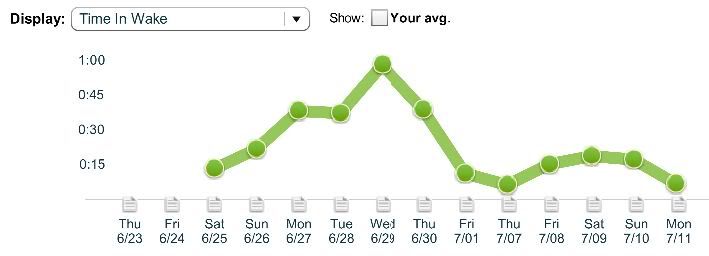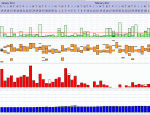Back in late June, I bought a Zeo. I've used it now for a couple of months so I thought a report in order.
First, a Zeo ( for those that don't know) is a non-medical device (no Rx required) designed to monitor sleep stages and therefore quality of sleep at home. It works by monitoring brainwaves with a three electrode device worn as a headband to the forehead. The device transmits to a bedside receiver which contains software, SD card writer, clock, alarm, and display screen. Data is collected on a non-proprietary SD card and uploaded by the user to the Zeo site for display in charts, graphs, tables and the like. The user may also download the info on the card for personal use as desired (i.e., make your own charts and graphs). Additionally, real time data is available by connecting directly to the bedside device.
The Zeo system records time to sleep, time in wake, time in light, time in deep, and time in REM as data and presents it in various forms so that individual night results and trends can be seen. Additionally, the site provides "coaching" designed to improve sleep hygiene and a wealth of information on the subject of sleep. It is quite well done.
Now, the big question is - is it accurate? I have no reason to think it is not accurate enough to use as an aid to understanding individual sleep patterns. It uses algorithms to determine sleep stages and so sometimes must "guess" the stage of sleep an individual is in. Sometimes it guesses wrong. For example, it might think you're asleep when you are relaxed and have been lying quietly for several moments. The results I've obtained mimic very closely my previous PSG's and individual nights seem to correlate very nicely with my ResScan and time lapse video; although, I think the strength of the machine lies not in an individual night's results, but in trends that might be uncovered through longer term use, say two weeks, a month, or longer. For example, last month I did a three week trial of a new drug. What the machine told me, objectively, was the longer I used the drug the more fragmented my sleep was becoming. That, coupled with the fact that I wasn't feeling any better, was enough for my doctor and I to discontinue the trial. (Yes, I'm lucky to have one of those doctors that encourages my use of Zeo, ResScan, etc.)
I've included a few screenshots to give a feel of what's available, but there's lots more including a diary. If you're looking for another tool in the box that might help you better understand your sleep-this might be it. I was looking for a device that would give me a repeatable and objective assessment of my sleep. I feel the Zeo does that.
If you want to post questions, I'll try to answer them.
Jay
A poor night's sleep 0n 8/31. Zeo Report. Note the number of wakenings
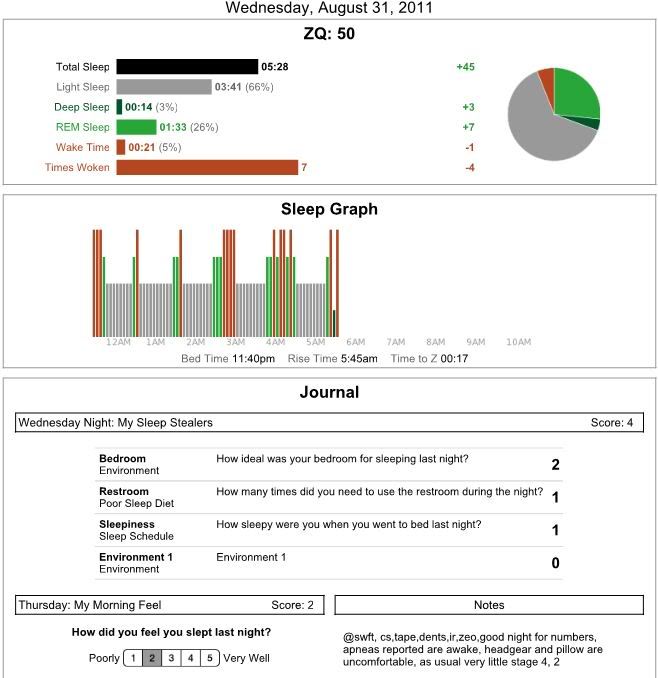
Overlay of Zeo graph above onto ResScan Chart AI=0.6, HI=2.9
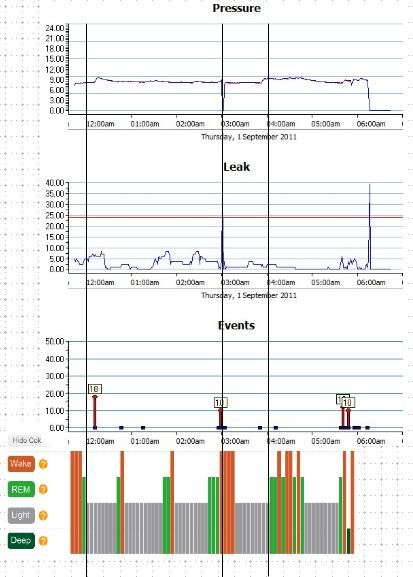
A much better night's sleep on 9/05.
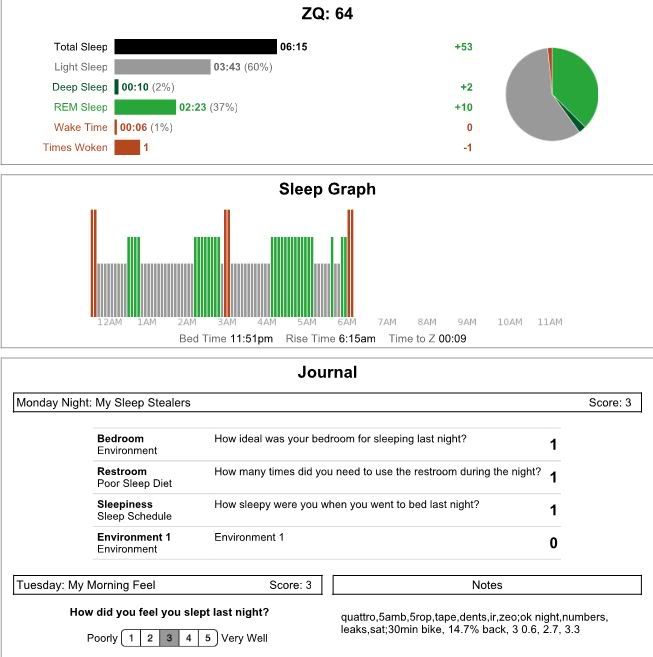
ResScan with overlay. AI=0.6, HI=1.7
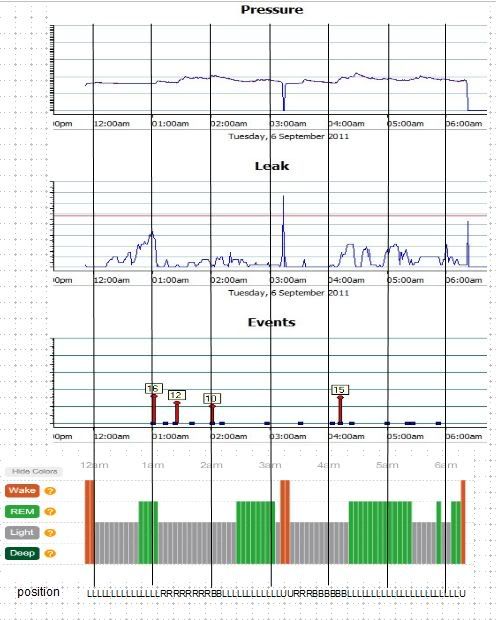
Zeo trend line of wakefulness while modifying mask to incorporate Zeo head band.
